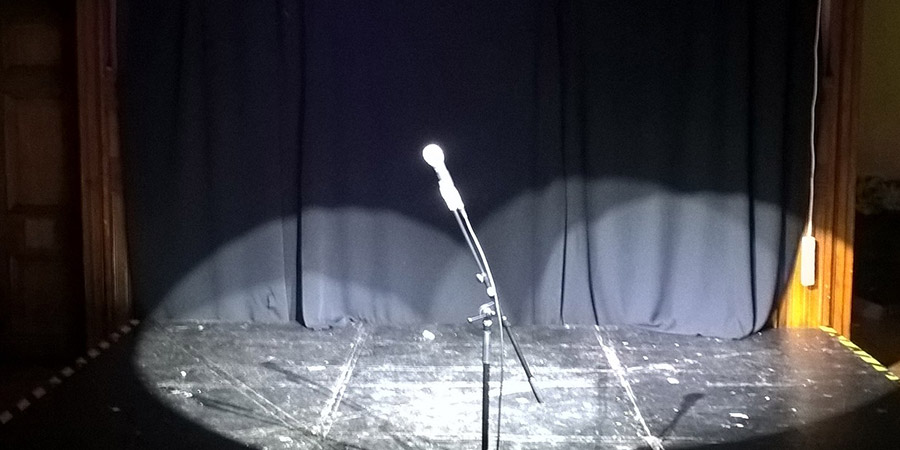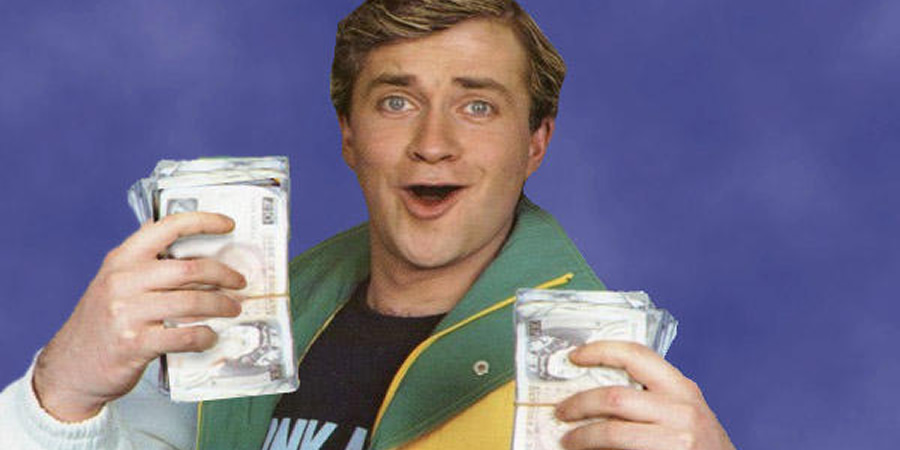The Catch-22 of starting out in stand-up comedy

It was revealed recently that Channel 4 and Sky are joining forces to make George Clooney's six-part adaptation of the classic novel Catch-22, for streaming service Hulu.
This is going to be a drama project rather than a comedy, so isn't much of interest to BCG in that regard. However, the news reminded us of that phrase, the one which was first coined and introduced in Joseph Heller's 1961 book, which this new TV project is based on. 'Catch-22' is pretty much the 'official' definition now when it comes to wanting to be able to describe a paradoxical situation from which an individual cannot escape because of contradictory rules.
What does this concept have to do with comedy? Well, we think pretty much all stand-up comedians must start their careers in a catch-22 situation. Essentially, they have the rather daunting task of needing to clock up as much stage time as possible to get good, but not immediately possessing the stage craft or material that's needed for a promoter to want to book them.
If you were interested in stock trading or such like, you can learn that in your own time at home, without any risk to others (unless you're un-wisely using loaned money to speculate, of course). In fact, there's dedicated websites via which you can learn how to trade Forex and such like. Follow these guidelines from the comfort of your own home, without anyone else scrutinising or judging you and, before you know it, you could be a trader.

But what if you don't want to wear a pinstripe suit or walk around with wads of cash like Harry Enfield's Loadsamoney creation? What if your idea of a career is making people laugh in dank basements and rooms above pubs? How do you start then?
Well, you have to get up on stage and start talking and finding what is funny. There is collateral damage though, in that an audience has to watch you making these first stumbles. No one starts out as great, as our First Gig, Worst Gig column reveals. Pretty much every comedian we've talked to over the last couple of years for that Q&A has admitted that, in hindsight, they weren't good enough on their first gig.
So the Catch-22 bit for comedians is that promoters don't really want to book you until you're good; but you can't get great until you've appeared in front of 'real' audiences to find out what works and what doesn't. As a result, some acts get trapped in the cycle of performing at open mic nights populated solely by other comedians who are performing on that night too - it's an audience that won't laugh at your gags because they're too busy thinking about their own set coming up, or bitter you're better than them. These rooms really don't act as good barometers as to what does and doesn't work and so it's hard to progress using them.
Thankfully, unlike the army pilots in the novel (who, on requesting an evaluation for insanity to get out of flying, automatically proved themselves sane enough) there is a way out for stand-ups. That solution is the promoters who are kind enough to allow an open spots on to their club nights. It's a chance for a new act to test themselves in a 'real' environment, but with the audience having the cushion of two experienced acts either side of this 'test'... reassuring the audience to come along.
In the process of writing this article we've probably just talked ourselves out of thinking it's a Catch-22 situation for rookie comedians. It makes sense it's not, because each year you do see comedians emerging having made it up the first run of the comedy performing career ladder. Perhaps it's just a Catch-21 situation then - really difficult, but possible! Whatever the case, whenever you see a new act on stage, give them some time and encouragement - they don't have it easy!
